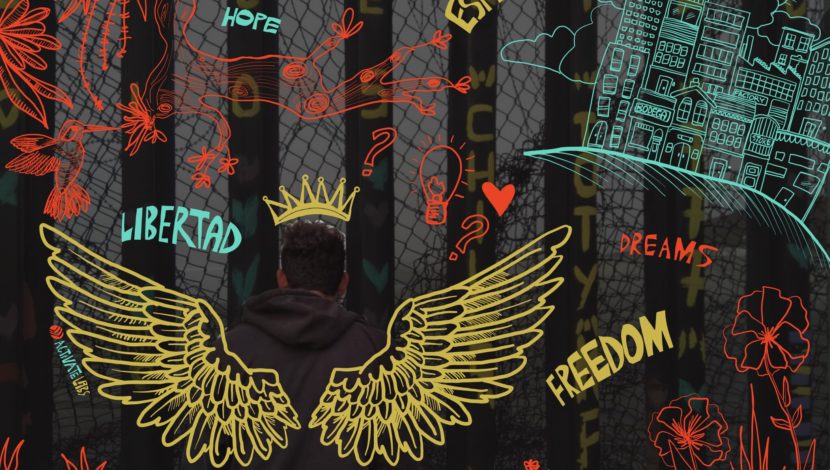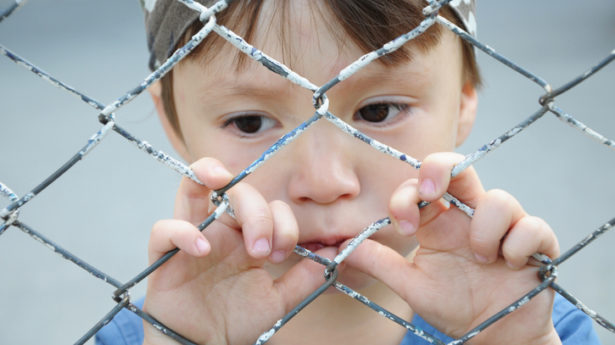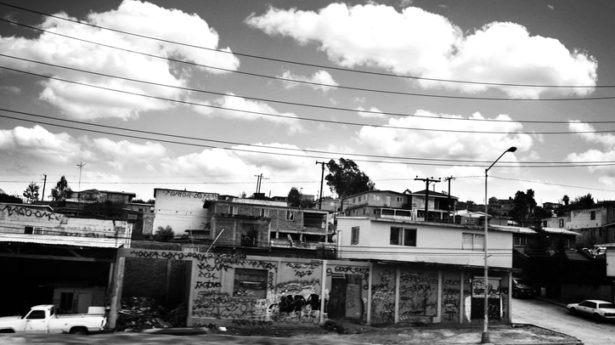The Unitarian Universalist Service Committee advances human rights through grassroots collaborations.
Walking with the Damned: Accompaniment in the Detention Process

By Monica Curca, Activate Labs on March 5, 2019
“I am so sorry Monica for not calling, it’s just that we are so hungry in here. They feed us a little bit of tasteless food at 4 a.m., 12 noon and 4 pm and then at night we are just starving. I wanted to save the money for my son to eat.”
This is how Piocha, an asylum-seeker in detention responded to me after he had not called in more than three weeks of his stay in detention. I had just driven five hours in traffic on five different freeways and mountain roads to reach the Adelanto Detention Center. But this was nothing compared to the more than 3,000 miles that he and his family had to cross to get to this point. I met him in Mexico City when Activate Labs, the nonprofit I founded was leading creative trauma healing spaces with migrants and then provided protective accompaniment for him and 30 others from Mexico City to Tijuana in the winter of 2018.
Piocha and his wife and their three adult children are asylum-seekers from El Salvador that crossed on January 30, 2019. Their cousin and aunt whom they had traveled with had crossed weeks before and were already in detention centers in Louisiana and San Diego. After waiting 45 days for their number to come up in Tijuana, they finally crossed legally with Grupo Beta, a human rights group.
The family was separated by gender and spent eight days in the hielera, a freezer-like processing center. After a long week, they were all transferred to the San Luis LaSalle Detention Center in Arizona, except for the mother who was not sent for a few more days. Placed in a different facility, the daughters pleaded for a week and eventually convinced the guards to let their mom join them. In the hielera, Piocha stopped sleeping, from the stress and environment. He said they turned up the cold at night, they never turned off the lights, the food was horrible, the water limited, and one forgets if its day or night. His wife suffered a severe accident, fracturing most of her bones on the left side as a child and has high sensitivity to cold, which made the hielera torture for her as they only allow detainees one layer of clothes and no jackets to protect them.
When I saw him, he had not slept for two and a half weeks and it showed—he was already becoming broken and losing hope. But this is what the system is made to do—it breaks you down and steals hope so you will feel like deportation is salvation. Together we talked and I shared some groundings and breathing exercises with him. The night after our visit he said was the first night he slept since he had arrived.
Sitting in detention was not something the family considered when they fled El Salvador three days after receiving death threats from the same people who had burned their cousin, killed family members, and severely injured a pregnant cousin. They inflicted violence and threatened Piocha and family, small business owners that ran a few fruit and vegetable stands in the public markets. His family was previously displaced before but this time it was too much. On October 30, 2018, the family fled.
These are just seven cases of the 40,000 (estimated) immigrant detainees that languish in the more than 200 detention facilities in the United States. As a family they have the right to ask for their case to be combined and yet access to counsel and to each other is nearly impossible. The ending to their story is not known. At the moment, Piocha and his son—now in the same cell at Adelanto—await the results of the parole request as they have already passed their credible fear interview (CFI). His wife and daughters have not been moved from the San Luis Detention Center, called a staging center, into a detention center with officers and a process to be released. We hope they will be moved to Adelanto. Their cousin already passed his CFI and now waits at River Correctional Facility in Louisiana for a bond hearing. His mother has been on lockdown in a health quarantine for the past three weeks at the Otay Mesa Detention Center—where we have had no contact with her.
Every day I receive a handful of calls from our migrant refugee friends, we talk about their case, I play recorded messages from boyfriends, girlfriends, family and friends. We talk about their family, what they will do when they get out, others who might be able to help with their case. We talk about everything like we are not talking about anything because we know our calls are recorded.
UUSC supports Activate Labs’ creative trauma healing spaces and accompaniment, as part of our strategy to uphold the dignity of Central American migrants in the United States, and our emergency response to the Central American exodus.
You can take action on Central American Migrant Justice here: https://www.uusc.org/initiatives/advocate-for-migrant-justice/
Photo Credit: Monica Curca, Activate Labs

